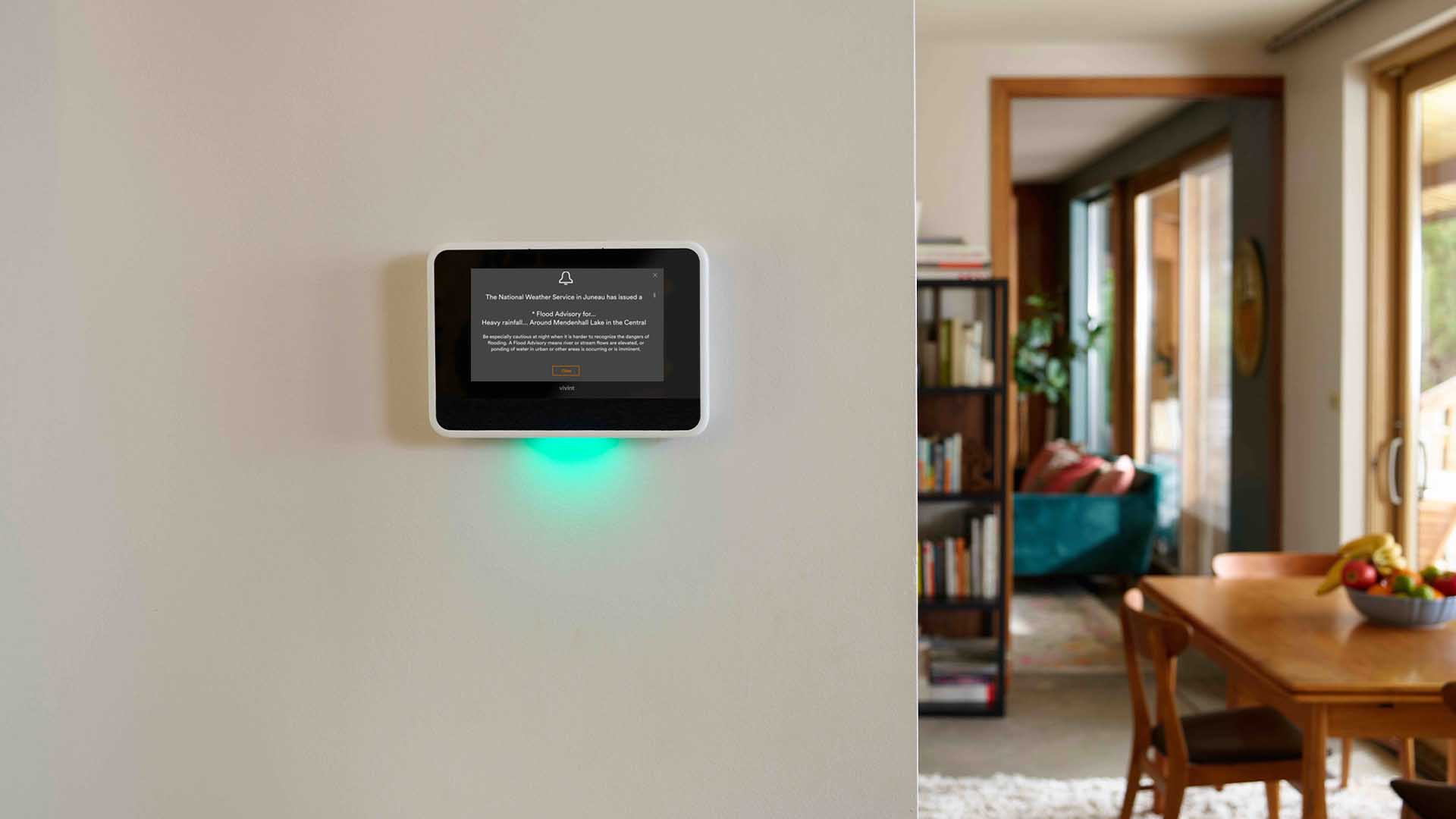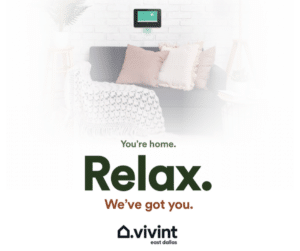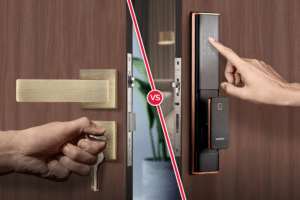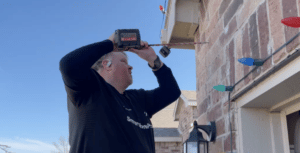The changing seasons can bring excitement, variety, and new outdoor opportunities, but in many parts of the country, the seasons can also bring severe storms and natural disasters.
- Flooding – Winter thaws and heavy rains can lead to flooding in the spring.
- Tornadoes – Tornadoes are most likely to occur in the spring and early summer.
- Hurricanes – The hurricane season can stretch throughout the summer and fall, putting much of the Atlantic Coast and Gulf Coast states at risk.
- Severe Winter Storms – During the winter, multiple states can get pounded by severe winter storms.
Natural disasters are a given in most parts of the country. Luckily, there are things you can do to stay safe during storms, flooding, and even earthquakes.
Smart homes–a smart choice for emergency preparedness
The number one thing you should do in a natural disaster is stay informed. If you’re experiencing severe weather, it’s vital for you to get up-to-the-minute information while you’re connected to the grid so you can know whether to evacuate, get off the roads, or take shelter.
A Vivint Smart Hub can help you before, during, and after a natural disaster by alerting you to potential issues in your area and around your home, and ensuring you have access to emergency responders.
The Vivint Smart Hub Panel alerts homeowners when severe weather–like tornadoes, winter storm warnings, or flash floods–is in your area. In addition to a visual alert, the panel also beeps until the severe weather warning notification is acknowledged.
A smart home doesn’t do any good if it’s not powered and connected. That’s why all Vivint sensors, smart locks, and the Vivint Smart Hub Panel feature battery backup that lasts up to 24 hours, keeping your home secure even if power is lost. And with dedicated cellular connectivity, as long as the panel is powered you stay connected to Vivint’s 24/7 security monitoring, meaning help is near in an emergency.

Tornados
For many of us, The Wizard of Oz gave us our first (and hopefully only) look at a tornado. But tornadoes touch down often enough to earn an entire area of the country the nickname Tornado Alley.
If you live in an area where tornadoes are common, take the disaster alerts on your Vivint Smart Hub Panel seriously—if a tornado warning alert appears, head to the basement or a safe spot pronto.
One of the challenges with staying safe in a tornado is having enough lead time–the amount of time between a tornado warning and when the tornado hits–to get to safety. The average tornado warning lead time is just 13 minutes. If you don’t have the TV or radio on, or can’t hear an audible alarm, it may be possible to miss the warning. The Vivint Smart Hub Panel is always on and can provide that vital warning lead time with a visual and audio alert.
In addition to the Vivint Smart Hub Panel, a smart home has plenty of features that can make it easy to secure and protect your home, even while you’re taking cover in the basement. With the Vivint app, you can lock your doors, close the garage door, and even check your outdoor camera feeds to see what’s going on outside.
Flooding
Certain parts of the country are pretty much guaranteed to never see specific natural disasters—you’d never experience a hurricane in the middle of South Dakota, for example. But flooding can (and does) occur in each of the 50 states; in fact, it’s the most widespread natural disaster after wildfires.
If floodwaters are at risk of reaching your home, the key to mitigating damage is to act quickly. Even an inch of water can cause significant damage.
Equipping your home with flood sensors is a good first step to flood protection, as these sensors alert you when moisture levels start to rise. The flood sensor also detects extreme shifts in temperature, which can help you identify if your HVAC has stopped working.
Earthquakes
Earthquakes have a wide range—they can be so small you hardly notice, or so powerful they level entire cities.
Preventative measures, like anchoring large furniture and appliances to the walls and placing heavy objects on bottom shelves, can help keep your home safe during an earthquake.
Your smart home can also alert you to damage caused by an earthquake. While glass break sensors are primarily used for home security purposes, but after an earthquake, they can also alert you to broken windows throughout your home. And flood sensors can detect moisture from broken pipes before flooding gets out of hand.
Hurricanes
Hurricane season along the Atlantic Coast and Gulf Coast generally runs from June 1 to November 30—a long time to be on alert.
Evacuations should always be taken seriously, but sometimes a hurricane hits before people can head to safety. In an emergency, the Vivint Smart Hub Panel connects you with Smart Home Monitoring Specialists who will contact police, fire, or medical help when requested or automatically if they can’t reach you.
Recovering from a disaster
No matter how vigilant you are in preparing for a disaster, damage to your home and smart home system can still occur. Vivint’s natural disaster policy has options to help get your system up and running again.
While knowing how to protect yourself from natural disasters is the best way to stay safe, a smart home can play an important role in protecting your home and family.





